Fantastic Quotes
Quotes tagged as "fantastic"
Showing 1-30 of 89
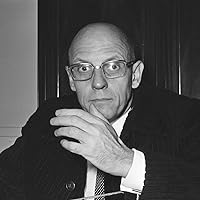
“The imaginary is not formed in opposition to reality as its denial or compensation; it grows among signs, from book to book, in the interstice of repetitions and commentaries; it is born and takes shape in the interval between books. It is the phenomena of the library.”
―
―
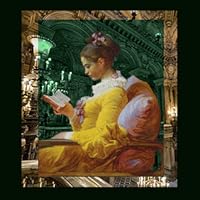
“Theatres are curious places, magician's trick-boxes where the golden memories of dramtic triumphs linger like nostalgic ghosts, and where the unexplainable, the fantastic, the tragic, the comic and the absurd are routine occurences on and off the stage. Murders, mayhem, politcal intrigue, lucrative business, secret assignations, and of course, dinner.”
― Brushstrokes of a Gadfly
― Brushstrokes of a Gadfly
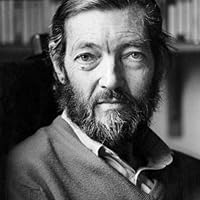
“An admirable line of Pablo Neruda’s, “My creatures are born of a long denial,” seems to me the best definition of writing as a kind of exorcism, casting off invading creatures by projecting them into universal existence, keeping them on the other side of the bridge… It may be exaggerating to say that all completely successful short stories, especially fantastic stories, are products of neurosis, nightmares or hallucination neutralized through objectification and translated to a medium outside the neurotic terrain. This polarization can be found in any memorable short story, as if the author, wanting to rid himself of his creature as soon and as absolutely as possible, exorcises it the only way he can: by writing it.”
― Around the Day in Eighty Worlds
― Around the Day in Eighty Worlds
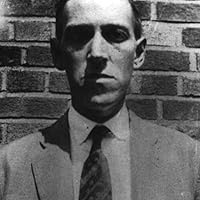
“A serious adult story must be true to something in life. Since marvel tales cannot be true to the events of life, they must shift their emphasis towards something to which they can be true; namely, certain wistful or restless moods of the human spirit, wherein it seeks to weave gossamer ladders of escape from the galling tyranny of time, space, and natural law.”
―
―
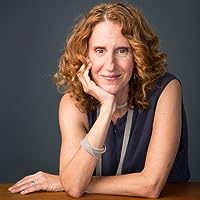
“If I stay. If I live. It’s up to me.
All this business about medically induced comas is just doctor talk. It’s not up to the doctors. It’s not up to the absentee angels. It’s not even up to God who, if He exists, is nowhere around right now. It’s up to me.”
― If I Stay
All this business about medically induced comas is just doctor talk. It’s not up to the doctors. It’s not up to the absentee angels. It’s not even up to God who, if He exists, is nowhere around right now. It’s up to me.”
― If I Stay

“You could start at a path leading nowhere more fantastic than from your own front steps to the sidewalk, and from there you could go… well, anywhere at all.”
― It
― It
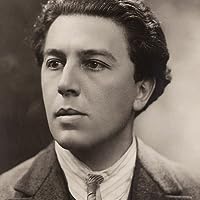
“What is admirable about the fantastic is that there is no longer anything fantastic: there is only the real.”
―
―
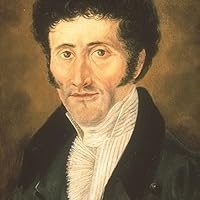
“There are... otherwise quite decent people who are so dull of nature that they believe that they must attribute the swift flight of fancy to some illness of the psyche, and thus it happens that this or that writer is said to create not other than while imbibing intoxicating drink or that his fantasies are the result of overexcited nerves and resulting fever. But who can fail to know that, while a state of psychical excitement caused by the one or other stimulant may indeed generate some lucky and brilliant ideas, it can never produce a well-founded, substantial work of art that requires the utmost presence of mind.”
― Die Serapions Brüder
― Die Serapions Brüder

“Skill alone cannot teach or produce a great short story, which condenses the obsession of the creature; it is a hallucinatory presence manifest from the first sentence to fascinate the reader, to make him lose contact with the dull reality that surrounds him, submerging him in another that is more intense and compelling.”
― Around the Day in Eighty Worlds
― Around the Day in Eighty Worlds
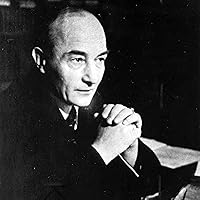
“Anyone who still wants to experience fairytales these days can’t afford to dither when it comes to using their brains.”
―
―
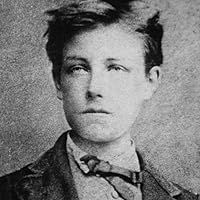
“In the great glasshouses streaming with condensation, the children in mourning-dress beheld marvels.”
―
―

“A certain atmosphere of breathless and unexplainable dread of outer, unknown forces must be present; and there must be a hint, expressed with a seriousness and portentousness becoming its subject, of that most terrible conception of the human brain - a malign and particular suspension or defeat of those laws of Nature which are our only safeguard against the assaults of chaos and the daemons of unplumbed space .... Therefore we must judge a weird tale not by the author's intent, or by the mere mechanics of the plot; but by the emotional level which it attains at its least mundane point... The one test of the really weird is simply this - whether or not there be excited in the reader a profound sense of dread, and of contact with unknown spheres and powers; a subtle attitude of awed listening, as if for the beating of black wings or the scratching of outside shapes and entities on the known universe's utmost rim.”
― Supernatural Horror in Literature
― Supernatural Horror in Literature
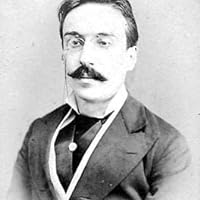
“Let us depart instead for the fields of Dreams and wander those blue, romantic hills where stands the abandoned tower of the Supernatural, where cool mosses clothe the ruins of Idealism. Let us, in short, indulge in a little fantasy!”
― The Mandarin and Other Stories
― The Mandarin and Other Stories
“Surrealism, then, neither aims to subvert realism, as does the fantastic, nor does it try to transcend it. It looks for different means by which to explore reality itself.”
― Dedalus Book of Surrealism 2: The Myth of the World
― Dedalus Book of Surrealism 2: The Myth of the World
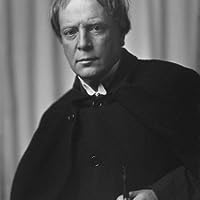
“We have just begun to navigate a strange region; we must expect to encounter strange adventures, strange perils.”
― The Terror
― The Terror

“The fantastic breaks the crust of appearance … something grabs us by the shoulders to throw us outside ourselves. I have always known that the big surprises await us where we have learned to be surprised by nothing, that is, where we are not shocked by ruptures in the order.”
― Around the Day in Eighty Worlds
― Around the Day in Eighty Worlds

“for he had acquired, as time went on, the firm conviction that any thought, even the most audacious, that any fiction, even the most insane, can one day materialize and see its fulfillment in space and time.”
―
―
“Children seem to need, then, a delicate balance between the realistic and the fantastic in their art; enough of the realistic to know that the story matters, enough of the fantastic to make what matters wonderful”
― Fantastic Worlds: Myths, Tales, and Stories
― Fantastic Worlds: Myths, Tales, and Stories

“Nevertheless, the potential and actual importance of fantastic literature lies in such psychic links: what appears to be the result of an overweening imagination, boldly and arbitrarily defying the laws of time, space and ordered causality, is closely connected with, and structured by, the categories of the subconscious, the inner impulses of man's nature. At first glance the scope of fantastic literature, free as it is from the restrictions of natural law, appears to be unlimited. A closer look, however, will show that a few dominant themes and motifs constantly recur: deals with the Devil; returns from the grave for revenge or atonement; invisible creatures; vampires; werewolves; golems; animated puppets or automatons; witchcraft and sorcery; human organs operating as separate entities, and so on. Fantastic literature is a kind of fiction that always leads us back to ourselves, however exotic the presentation; and the objects and events, however bizarre they seem, are simply externalizations of inner psychic states. This may often be mere mummery, but on occasion it seems to touch the heart in its inmost depths and become great literature.”
― The Fantasy Book: An Illustrated History From Dracula To Tolkien
― The Fantasy Book: An Illustrated History From Dracula To Tolkien
“The fantastic cannot exist independently of that 'real' world which it seems to find frustratingly finite.”
― Fantasy: The Literature of Subversion
― Fantasy: The Literature of Subversion

“Granana doesn't understand what the big deal is. She didn't cry at Olivia's funeral, and I doubt she even remembers Olivia's name. Granana lost, like, ninety-two million kids in childbirth. All of her brothers died in the war. She survived the Depression by stealing radish bulbs from her neighbors' garden, and fishing the elms for pigeons. Dad likes to remind us of this in a grave voice, as if it explained her jaundiced pitilessness: "Boys. Your grandmother ate pigeons.”
― St. Lucy's Home for Girls Raised by Wolves
― St. Lucy's Home for Girls Raised by Wolves
“Psychic change, as Todorov has recognized, subverted the genre in another way, by revoking the cultural taboos, the social censorship, that had prohibited the overt treatment of psychosexual themes, which then found covert expression in the supernatural tale. 'There is no need today to resort to the devil [or to posthumous reverie] in order to speak of excessive sexual desire, and none to resort to vampires in order to designate the attraction exerted by corpses: psychoanalysis, and the literature which is directly or indirectly inspired by it, deal with these matters in undisguised terms. The themes of fantastic literature have become, literally, the very themes of the psychological investigations of the last fifty years.”
― The Haunted dusk: American supernatural fiction, 1820-1920
― The Haunted dusk: American supernatural fiction, 1820-1920

“But if what interests you are stories of the fantastic, I must warn you that this kind of story demands more art and judgment than is ordinarily imagined.”
―
―
“The shifting sands of the world... show how much the surrealists were drawn towards an interrogation of what reality actually is. Unlike fabulists of whatever hue, there is a materiality in surrealist writing that resolutely keeps it, one might say, 'down to earth'.”
― Dedalus Book of Surrealism 2: The Myth of the World
― Dedalus Book of Surrealism 2: The Myth of the World

“The fantastic postulates that there are forces in the outside world, and in our own natures, which we can neither know nor control, and these forces may even constitute the essence of our existence, beneath the comforting rational surface. The fantastic is, moreover, a product of human imagination, perhaps even an excess of imagination. It arises when laws thought to be absolute are transcended, in the borderland between life and death, the animate and the inanimate, the self and the world; it arises when the real turns into the unreal, and the solid presence into vision, dream or hallucination. The fantastic is the unexpected occurrence, the startling novelty which goes contrary to all our expectations of what is possible. The ego multiplies and splits, time and space are distorted.”
― The Fantasy Book: An Illustrated History From Dracula To Tolkien
― The Fantasy Book: An Illustrated History From Dracula To Tolkien

“Many of the best fantastic stories begin in a leisurely way, set in commonplace surroundings, with exact, meticulous descriptions of an ordinary background, much as in a 'realistic' tale. Then a gradual - or it may be sometimes a shockingly abrupt - change becomes apparent, and the reader begins to realize that what is being described is alien to the world he is accustomed to, that something strange has crept or leapt into it. This strangeness changes the world permanently and fundamentally.”
― The Fantasy Book: An Illustrated History From Dracula To Tolkien
― The Fantasy Book: An Illustrated History From Dracula To Tolkien

“Fantastic literature has been especially prominent in times of unrest, when the older values have been overthrown to make way for the new; it has often accompanied or predicted change, and served to shake up rational Complacency, challenging reason and reminding man of his darker nature. Its popularity has had its ups and downs, and it has always been the preserve of a small literary minority. As a natural challenger of classical values, it is rarely part of a culture's literary mainstream, expressing the spirit of the age; but it is an important dissenting voice, a reminder of the vast mysteries of existence, sometimes truly metaphysical in scope, but more often merely riddling.”
― The Fantasy Book: An Illustrated History From Dracula To Tolkien
― The Fantasy Book: An Illustrated History From Dracula To Tolkien
“But the recurrent ambiguity of the American tale of the supernatural reveals both a fascination with the possibility of numinous experience and a perplexity about whether there was, in fact, anything numinous to be experienced. Writers often delighted in leading readers into, but not out of, the haunted dusk of the borderland.”
― The Haunted dusk: American supernatural fiction, 1820-1920
― The Haunted dusk: American supernatural fiction, 1820-1920

“As has already been noted, fantastic literature developed at precisely the moment when genuine belief in the supernatural was on the wane, and when the sources provided by folklore could safely be used as literary material. It is almost a necessity, for the writer as well as for the reader of fantastic literature, that he or she should not believe in the literal truth of the beings and objects described, although the preferred mode of literary expression is a naive realism. Authors of fantastic literature are, with a few exceptions, not out to convert, but to set down a narrative story endowed with the consistency and conviction of inner reality only during the time of the reading: a game, sometimes a highly serious game, with anxiety and fright, horror and terror.”
― The Fantasy Book: An Illustrated History From Dracula To Tolkien
― The Fantasy Book: An Illustrated History From Dracula To Tolkien
All Quotes
|
My Quotes
|
Add A Quote
Browse By Tag
- Love Quotes 97.5k
- Life Quotes 76k
- Inspirational Quotes 73k
- Humor Quotes 44k
- Philosophy Quotes 29.5k
- Inspirational Quotes Quotes 27k
- God Quotes 26k
- Truth Quotes 23.5k
- Wisdom Quotes 23.5k
- Romance Quotes 23k
- Poetry Quotes 22k
- Death Quotes 20k
- Happiness Quotes 18.5k
- Life Lessons Quotes 18.5k
- Hope Quotes 18k
- Faith Quotes 18k
- Quotes Quotes 16.5k
- Inspiration Quotes 16.5k
- Spirituality Quotes 15k
- Religion Quotes 15k
- Motivational Quotes 15k
- Writing Quotes 15k
- Relationships Quotes 14.5k
- Life Quotes Quotes 14k
- Love Quotes Quotes 14k
- Success Quotes 13.5k
- Time Quotes 12.5k
- Motivation Quotes 12k
- Science Quotes 11.5k
- Motivational Quotes Quotes 11.5k


